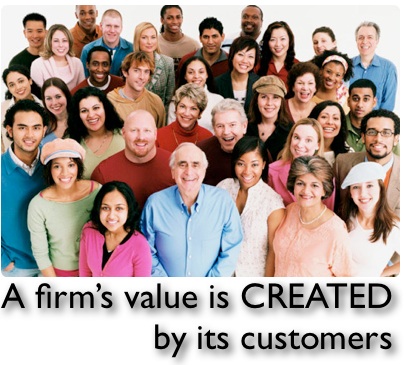Socialnomics & Ownership
/ I had an interesting exchange with a very reputable business associate yesterday, during which the topic of "ownership" came up as central to his business objectives. We all understand the notion, dedicate yourself to a company, build it up for years and then perhaps sell it for a premium value as you sail away into the sunset. As I woke this morning having thought about the prior days chat, another friend, Rasmus Elmann Ingerslev, had recommended a video on socialnomics that I watched, shown below. I am uncertain if most really understand what socialnomics signifies, as I've concluded its only the beginning of a far larger trend with greater implications beyond those of my facebook account. Similarly I am unclear if most business owners understand what the value of something really is and how these trends will impact it. Hence this post.
I had an interesting exchange with a very reputable business associate yesterday, during which the topic of "ownership" came up as central to his business objectives. We all understand the notion, dedicate yourself to a company, build it up for years and then perhaps sell it for a premium value as you sail away into the sunset. As I woke this morning having thought about the prior days chat, another friend, Rasmus Elmann Ingerslev, had recommended a video on socialnomics that I watched, shown below. I am uncertain if most really understand what socialnomics signifies, as I've concluded its only the beginning of a far larger trend with greater implications beyond those of my facebook account. Similarly I am unclear if most business owners understand what the value of something really is and how these trends will impact it. Hence this post.
What socialnomics represents is the first wave in a series of approaching changes brought on by technology, which will deconstruct numerous and long standing economic paradigms including, among others, distribution, value creation and value exchange. How ? Because social technologies decentralize everything by empowering choice through the ubiquity of information. Social media is but the beginning of a series of tools that will provide users complete control over what is authentic, valuable and meaningful to them, thus obfuscating centralization in any and all systems. This is the essence of "socialnomics": economic rules redefined via new "social media", I call it technological, tools.
How economics are redefined by socialnomics is very simple. In the past people created wealth largely through one basic principal - they had information others did not and exploited that information to their benefit at the cost of others. These information disparities could last for extended periods and therefore organizations could be sustained for periods of time wherein an advantage existed. In the new economics this will become increasingly difficult because of the ubiquity of information. In "free markets" margins are driven towards zero. Therefore, value will have to be created in new ways, largely via increasingly short term creations of unique solutions. Thus value will be driven increasingly by what customers choose - not in how they are exploited by sustained information disparities or anomalies: a concept shared by the like of Toffler, Anderson and others.
The implications to organizations are enormous because competitive advantages will be increasingly fleeting. In Fung and Wind's book Competing in a Flat World, the notion of value and network organizations is craft fully set out, particularly how organizations must reengineer to become valuable. I've posted on the matter previously. In the old paradigm you could create something of value, build a fence around it and get someone to covet it enough to purchase it. In the new world, the platform is the value, change is too rapid to maintain an extended advantage and in the end your value is only that which your customers deem you deserve. With increasingly lower barriers to entry and free information too many alternatives are available. Think about it, who "owns" Google ? Truthfully, its customers do. If tomorrow everyone stopped using Google its "value" would be zero. Socialnomics reflects a free market in the purest sense and therefore, I ponder if many in business have grasped that fact when they imagine their sailing away into the sunset as a result of something they've built over years. That, I think, will becoming an increasingly rare occurrence.






